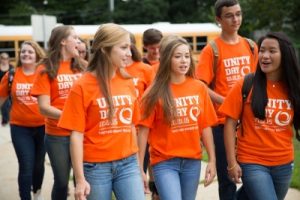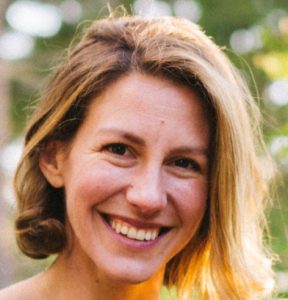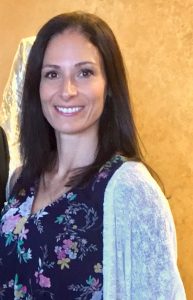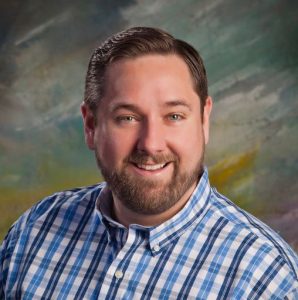Recently, one of UMF’s alumna was featured on the Mt. Blue Regional School District website for her exemplary work in building relationships with students and individualizing instruction. Christina Dionne, a graduate from UMF’s Secondary Education program, is currently teaching math at Mt. Blue Middle School and taking strides everyday to better herself as an educator and her students as learners.
Christina has always liked math, and she was in the advanced math classes in high school. When she first came to UMF she was an art major, but after her freshman year she changed her major so that she could pursue a career in math. The UMF methods courses that Christina took brought about a passion for teaching in her.
After graduating, Christina took a job as a camp counselor. Two years later, she became the arts and crafts specialist at camp. On her fourth year, Christina was promoted to being a unit leader and was responsible for managing the four groups within her unit, communicating with parents, and organizing activities and field trips. Eventually, Christina took on a job in early childhood, where she was able to understand child development more clearly and gain an understanding of how to better implement a curriculum with a holistic approach. Christina then took on her position at Mt. Blue Middle School.
Christina has expressed her commitment to proficiency-based education, which helped her to earn the respect of administration. Christina puts in very long hours at school, staying late to volunteer with After School Study and immerses herself in her work and her students.
One of Christina’s goals is to develop a proficiency-based program in math and show her students how to track their own progress in comparison with the standards. Christina would like to incorporate a more hands on approach that requires students to solve real-life math problems, and to implement the skills they learn both inside and outside of the classroom. She loves to challenge her students’ critical thinking.
Along with increasing student proficiency, Christina also makes it a point to create a student community in her classroom. Students often work together to learn from one another, build peer relationships, and increase their self esteem. This approach allows Christina to individualize instruction for those who need it while others are working together.
When asked about the challenges that she faces, Christina said that student frustration and behavior can be difficult. Christina tries to understand the cause of the behavior and work with the student to help them solve whatever problem they are facing. She aims to build healthy, valuable relationships with students. Christina also works at getting students interested in math. She uses various techniques, approaches, games, and activities to make learning math more fun and applicable.
Christina is one of many amazing teachers to have come from a UMF Teacher Education Program, and Mt. Blue Middle School and her students are lucky to have her! For more information about the amazing schools and opportunities in the Mt. Blue Regional School District, check out their website!




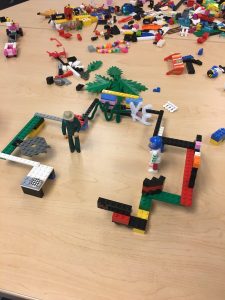
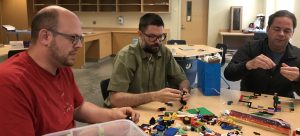
 behavior.
behavior.